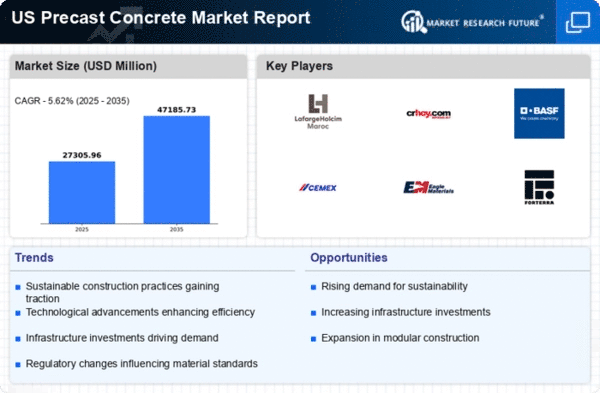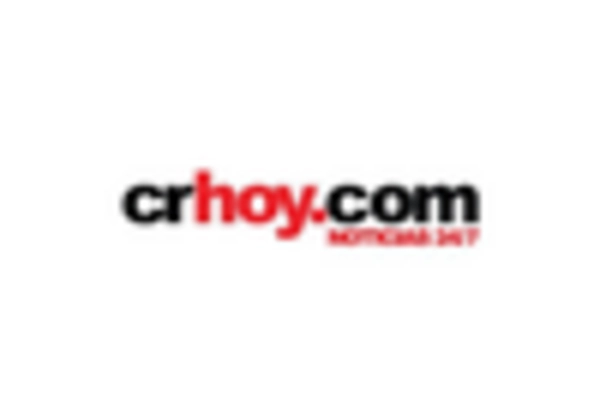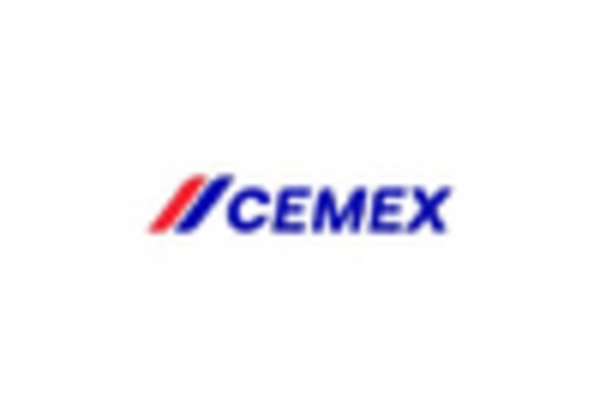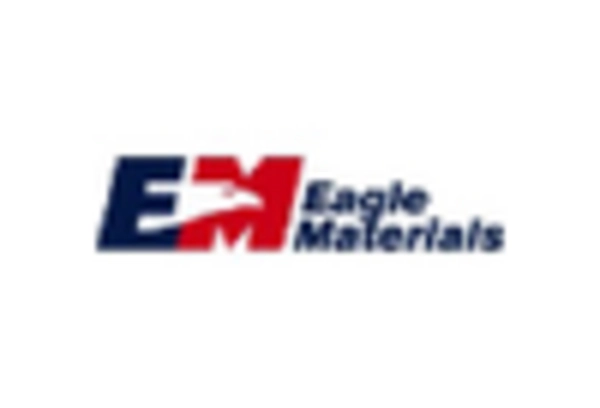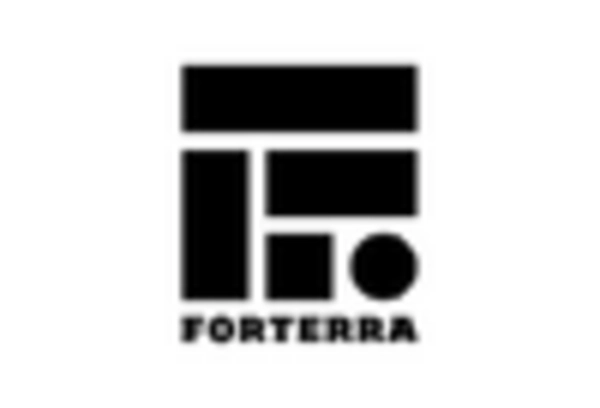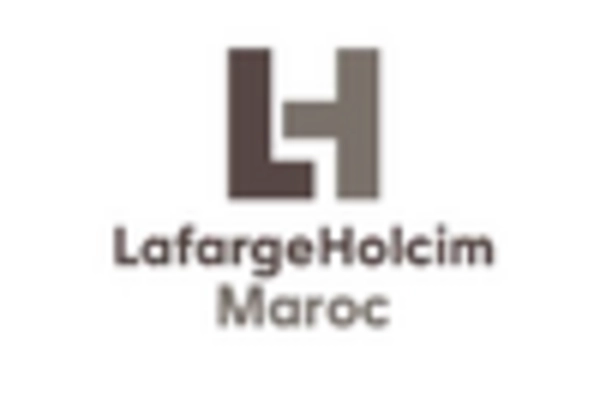Rising Demand for Affordable Housing
The precast concrete market is experiencing a notable surge in demand due to the need for affordable housing solutions across the United States. As housing prices continue to escalate, developers are increasingly turning to precast concrete for its cost-effectiveness and speed of construction. This method allows for quicker project completion, which is essential in addressing the housing shortage. According to recent data, the precast concrete market is projected to grow at a CAGR of approximately 6% over the next five years, reflecting the increasing reliance on this construction method. The ability to produce large quantities of precast elements in a controlled environment further enhances efficiency, making it a preferred choice for builders aiming to meet the growing housing demands. Thus, the rising demand for affordable housing significantly influences the precast concrete market.
Government Infrastructure Investments
Government initiatives aimed at enhancing infrastructure are playing a pivotal role in the precast concrete market. With substantial investments allocated for roads, bridges, and public facilities, the demand for precast concrete components is expected to rise. The U.S. government has earmarked billions of dollars for infrastructure projects, which directly benefits the precast concrete market. For instance, the recent infrastructure bill proposes an investment of $1.2 trillion, with a significant portion directed towards modernizing transportation networks. This influx of funding is likely to stimulate the precast concrete market, as these materials are ideal for creating durable and long-lasting structures. The emphasis on improving infrastructure supports economic growth and enhances the overall demand for precast concrete solutions.
Sustainability Regulations and Standards
The precast concrete market is increasingly influenced by sustainability regulations and standards implemented across various states. As environmental concerns gain prominence, regulatory bodies are establishing guidelines that encourage the use of sustainable building materials. Precast concrete, known for its energy efficiency and recyclability, aligns well with these regulations. The market is witnessing a shift as builders and developers seek to comply with these standards, which often include requirements for reducing carbon footprints and enhancing energy efficiency. This regulatory environment is likely to foster growth in the precast concrete market, as companies that adopt sustainable practices may gain a competitive edge in the industry.
Increased Focus on Construction Efficiency
The precast concrete market is being propelled by an increased focus on construction efficiency and productivity. Builders are seeking methods that reduce labor costs and construction time, and precast concrete offers a viable solution. By utilizing precast elements, construction projects can be completed more rapidly, which is crucial in a competitive market. Recent studies indicate that projects using precast concrete can reduce construction time by up to 30%, thereby enhancing overall project efficiency. This trend is particularly relevant in urban areas where time constraints are critical. As the construction industry continues to evolve, the emphasis on efficiency is likely to drive further adoption of precast concrete, solidifying its position in the market.
Technological Innovations in Manufacturing
Technological innovations in manufacturing processes are significantly impacting the precast concrete market. Advances in automation, 3D printing, and digital modeling are enhancing the production of precast elements, leading to improved quality and reduced costs. These technologies allow for greater precision in manufacturing, which is essential for meeting the specific requirements of modern construction projects. The integration of smart technologies into the production process is enabling manufacturers to optimize their operations and increase efficiency. As these innovations continue to evolve, they are likely to drive growth in the precast concrete market, as companies that leverage these technologies can offer superior products and services.


